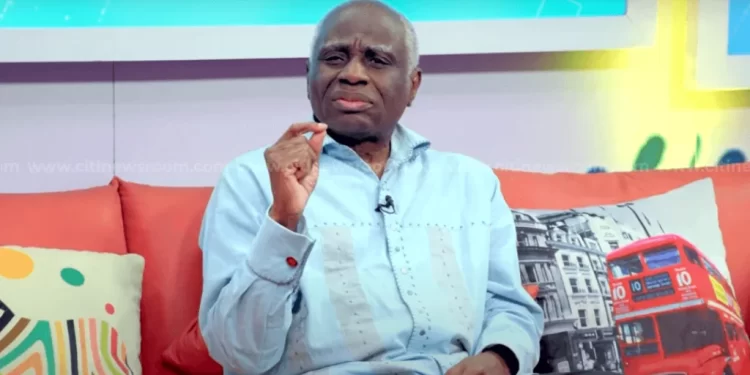Concerns Raised Over Perceived Judicial Bias in Ghana Amid Declining Independence
Concerns Raised Over Perceived Judicial Bias in Ghana Amid Declining Independence

- Tsatsu Tsikata has expressed alarm over rising perceptions that Ghana's judiciary may be favoring the ruling NPP
- His comments come in light of findings from the 2024 Mo Ibrahim Index on African Governance
- Tsikata highlighted the long-term consequences of this mistrust
Legal practitioner Tsatsu Tsikata has expressed alarm over rising perceptions that Ghana’s judiciary may be favoring the ruling New Patriotic Party (NPP), warning that such beliefs could undermine the country’s democratic foundations.
His comments come in light of findings from the 2024 Mo Ibrahim Index on African Governance, which highlighted a significant decline in Ghana’s judicial autonomy.
The report indicates that the country’s judicial independence has plummeted from a full 100 percent to just 50 percent over the past seven years, reflecting a troubling shift in public confidence in the judiciary.
During an interview, Tsikata explained how these perceptions erode public trust not only in the judiciary but also in the broader legal profession. “If people lose confidence in the judiciary, it also translates to a loss of confidence in the legal profession,” he remarked. “The judiciary comprises individuals who have ascended through the legal ranks, and when trust in the judiciary diminishes, it directly impacts the adjudication process that lawyers engage in.”
Tsikata expressed concern about the public’s growing belief in judicial bias towards the ruling party, noting that this sentiment has become increasingly prevalent among Ghanaians.
He pointed out that citizens often jokingly refer to the judiciary as a “unanimous football club,” suggesting that judges consistently rule in a manner that favors the NPP.
“Such humor reflects a serious issue,” Tsikata warned. “When people start to view the judiciary this way, it sets a dangerous precedent that can lead to a complete loss of faith in the judicial process.”
He emphasized that, while these perceptions might be dismissed as lighthearted, they pose significant risks for the nation.
Tsikata highlighted the long-term consequences of this mistrust, warning that if left unaddressed, it could undermine confidence not just in individual judges but in the judicial system as a whole.
With the 2024 general elections approaching, Tsikata stressed the urgent need for a judiciary that maintains impartiality and resists partisan influences.
He urged judicial leaders and policymakers to prioritize efforts to restore and safeguard the institution’s independence.
The findings of the 2024 Mo Ibrahim report, along with these public sentiments, have ignited a broader conversation about the state of judicial autonomy in Ghana, with calls from various sectors for reforms aimed at restoring the judiciary’s credibility and ensuring it functions as an impartial and independent branch of government.





